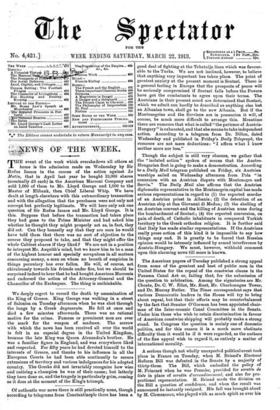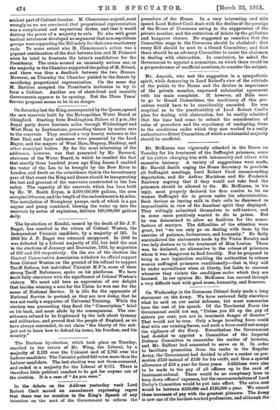A serious though not wholly unexpected political event took place
in France on Tuesday, when M. Briand's Electoral Reform Bill was defeated in the Senate by a majority of thirty-three. The Bill, which embodied the policy of M. Poincare when he was Premier, provided for scrutin de liste in place of scrutin d'arrondissement, and also for pro- portional representation. M. Briand made the division on the Bill a -question of confidence, and when the result was announced be instantly resigned. His fall was brought about by M. Clemenceau, who played with as much spirit as ever his
ancient part of Cabinet-breaker. M. Clemencean argued, most wrongly as we are convinced, that proportional representation was a complicated and unpractical device, and that it would destroy the power of a majority to rule. He also with great tactical astuteness developed an argument that non-republican groups were supporting the Bill solely for their own reactionary ends. To some extent also M. Clemenceau's action was a piquant continuation of the duel between him and M. Poincare when he tried to frustrate the latter's candidature for the Presidency. The crisis seemed an unusually serious one, as the majority in the Chamber supported the policy of M. Briand, and there was thus a deadlock between the two Houses. However, on Thursday the Chamber yielded to the Senate by sacrificing proportional representation. On the same day M. Barthou accepted the President's invitation to try to form a. Cabinet. Another era of short-lived and unstable Governments appears to be opening. But the Three Years' Service proposal seems to be in no danger.















































